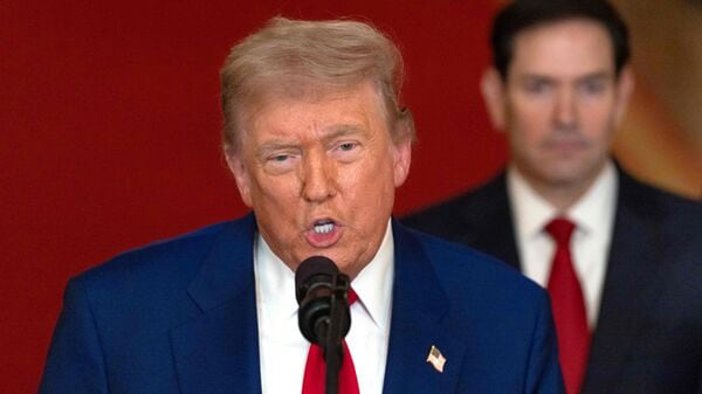
Congress Debates Trump’s Iran Strikes, War Powers
Trump’s Iran strikes win GOP praise and some bipartisan support, but Congress clashes over war powers and future U.S. involvement.
Congress Splits Over Trump’s Iran Airstrikes
President Donald Trump’s decision to launch airstrikes against three Iranian nuclear sites has sharply divided Congress and sparked a fierce debate over presidential war powers. The strikes, targeting Fordow, Natanz, and Isfahan, were carried out without explicit congressional authorization, leading to bipartisan concerns about constitutional limits on the executive branch’s authority to wage war.
Many Republicans have largely supported President Trump’s actions, citing Iran’s ongoing nuclear threat and the need to support key allies in the region. Senator Lindsey Graham of South Carolina called the operation "the right call," while House Speaker Mike Johnson praised Trump for his clear stance that a nuclear-armed Iran would not be tolerated. "Military operations in Iran should serve as a clear reminder to our adversaries and allies that President Trump means what he says," Johnson stated.
Some Democrats, including Senator John Fetterman of Pennsylvania, also voiced approval. "As I’ve long maintained, this was the correct move. Iran is the world’s leading sponsor of terrorism and cannot have nuclear capabilities. I’m grateful for and salute the finest military in the world," Fetterman posted online. Others emphasized the message of "peace through strength," arguing that decisive military action is necessary to prevent Iran from obtaining nuclear weapons.
Debate Intensifies Over Constitutional Authority
However, sharp criticism has emerged from both parties over Trump’s decision to act without seeking congressional consent. Representative Thomas Massie, a Republican from Kentucky, and Representative Ro Khanna, a Democrat from California, quickly condemned the move as "not constitutional." The two lawmakers introduced a bipartisan War Powers Resolution in the House, aiming to block the U.S. from further involvement in Iran without congressional approval. "Trump struck Iran without any authorization of Congress. We need to immediately return to DC and vote on our War Powers Resolution to prevent America from being dragged into another endless Middle East war," Khanna stated.
Senator Tim Kaine, Democrat of Virginia, also introduced a similar measure in the Senate, underscoring that "the American public is overwhelmingly opposed to the U.S. waging war on Iran." Kaine plans to force a vote on the Senate floor by the end of the week, arguing that only Congress has the constitutional authority to declare war. The War Powers Resolution seeks to "remove United States Armed Forces from unauthorized hostilities in the Islamic State of Iran" and would require Trump to terminate military deployments against Iran unless formally authorized by Congress.
The dispute highlights long-standing tensions between Congress and the executive branch over control of U.S. military action abroad. While some lawmakers, including progressive Democrats and fiscal conservatives, have formed an unusual coalition opposing further escalation, others warn that failing to act decisively could endanger both American interests and global security.
Congress is now set for a Senate-wide briefing on Iran, scheduled for Tuesday. With bipartisan support growing for restrictions on unilateral military action, lawmakers are preparing for contentious debates over the limits of presidential power and America’s future role in Middle East conflicts.
As the world watches the aftermath of Trump’s high-stakes decision, Congress faces mounting pressure to clarify its stance. The coming days will determine not only the direction of U.S. policy in Iran, but also the enduring balance of power between Congress and the White House in matters of war and peace.






